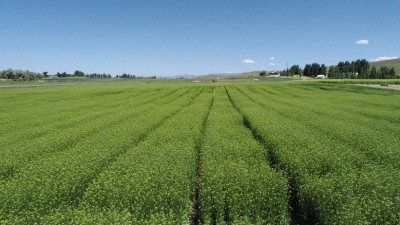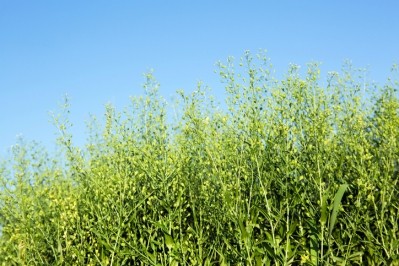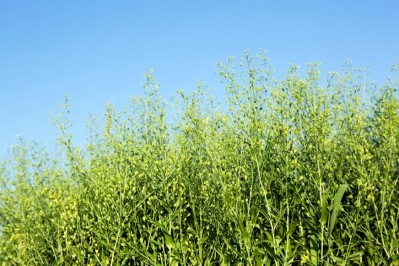Yield10: Camelina seed offers huge promise beyond biodiesel sector

Yield10 Bioscience, Inc. is a Woburn, Massachusetts headquartered agricultural bioscience company that is using its differentiated trait gene discovery platform to develop improved Camelina varieties for the production of proprietary seed products, and to discover high value genetic traits for the agriculture and food industries.
CEO, Dr Oliver Peoples, told us the company’s mission is to develop carbon negative, sustainable products, establishing a high value seed products business based on developing superior varieties of Camelina.
“Camelina is an oilseed that has been grown in Northern Europe for centuries but it has not really been domesticated for large-scale production in other parts of the world.
"We have been working on this as part of our synthetic biology platform for around 10-12 years. Camelina is very like rapeseed or canola, the seed can be processed to produce oil for biofuels or nutrition applications and then there is protein output for use in poultry, pig and salmon feed.
“Using both CRISPR and GMO technology, we are looking to improve the productivity and the sustainability of the crop."
There is a push on, currently, to support the growth of cover crops in the US, said Peoples.
“Cover crops are planted in the winter, they help to reduce nutrient pollution of water and soil run-off and Camelina is very well suited to that. So, there are the evident environmental benefits from growing Camelina, but using it as a second crop on soybean and corn acres means you also get a valuable seed that produces oil and protein.”
The near-term commercial opportunities for Yield10, continued the CEO, are in vegetable oil, for which there is tremendous demand currently in the US.
“We need another 20 million tons of vegetable oil just to support the existing investments in renewable fuels to reduce carbon. We are not going to be a biofuel company but that is a market that we can partner in, with some of the biofuel players, and it allows us to start to commercialize our business, our technology, and our new and improved varieties of Camelina.”
Omega-3 oil
But another area of focus for the ag bioscience company is using Camelina derived oil in fish feed.
Yield10 will be capitalizing, he said, on research work done at Rothamsted Research in the UK using transgenic camelina plants that were engineered to accumulate EPA and DHA in their seeds.
A study undertaken by the UK institute, in collaboration with the Norwegian University of Science and Technology found such GM Camelina oil to be an effective substitute for fish oil in salmon diets. “We are looking to commercialize such Camelina oil, focusing initially on South America, notably the aquaculture market in Chile.”
Bioplastics
Longer term, Yield10 is also looking to leverage Camelina as a platform crop to directly produce PHA bioplastics.
“We are starting to scale up the prototypes for that in field work in the US, in Idaho. Ultimately, such bioplastics could be used to substitute 5 million tons of petroleum polluting plastics used in packaging and food service ware. That is a very exciting prospect.”












